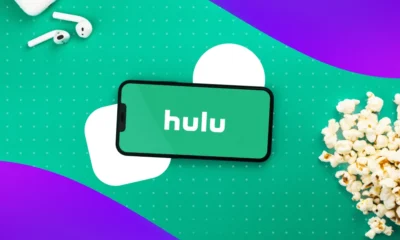SOCIAL
Major Advertisers Pull Out of X, Which Could Spark a Bigger Shift Away From the App

While Elon Musk and X CEO Linda Yaccarino have repeatedly lauded the fact that their X project is “not boring”, I’m pretty sure that the events of this week would have them both relieved to see a period of relative boredom heading into the holiday break.
Though that, of course, seems unlikely.
This week, X has been hit with a new raft of challenges, mostly stemming from Musk’s own statements and public stances on various issues.
To recap, throughout the week:
- A new third-party analysis report suggested that X is not doing enough to combat misinformation around the Israel-Hamas war, which is essentially supported by X’s own enforcement numbers
- Based on this, and other reports, the European Commission announced that it would stop advertising on X, due to “widespread concerns relating to the spread of disinformation”
- The following day, IBM also announced that it would halt all advertising on X as a result of a new report from Media Matters which showed that X is placing paid promotions alongside pro-Nazi material in-stream
- On that same day, Musk amplified and supported an anti-Semitic talking point on X, which has been linked to various attacks on Jewish people over the years (SMT will not be repeating the details of this)
- As a result of Musk’s post, several big-name advertisers have now announced that they’ll also be pausing their X ad campaigns, including Apple, Lionsgate, Disney, and more. The list of advertisers joining this new boycott is growing by the hour
- A federal judge also rejected an attempt by X to overturn an FTC fine of $150 million (stemming from actions under previous Twitter management)
- On another front, an industry watchdog has called on the FTC to examine X’s new ad formats, some of which are not clear enough in their disclosure. That could lead to a new investigation into X’s ad practices
So, yeah, it hasn’t been a great week for Elon and Co., and their newly free-speech-aligned X app, which is now significantly more reliant on crowd-sourced moderation, via Community Notes, to manage key tasks. Which, based on a growing number of investigations, is clearly not capable of handling such.
Though that, of course, is not even the biggest concern, with Elon’s own commentary taking the mantle for X’s central business problem this week.
Elon has long been defiant on this front, repeatedly stating that he will say what he wants in the app, even if it means losing money as a result.
And it does seem that he is about to find out how expensive his commentary can be. As a reminder, X’s ad revenue is already down at least 50% on last year, so any loss of a major brand partner will be significant, in terms of the ongoing viability of the app.
Because even though Musk has cut costs significantly, by culling 80% of staff, shutting down data centers, selling off Twitter-branded artifacts, and more. Even with all that in mind, X is still riding the line on profitability.
In a recent interview, Yaccarino said that X could be close to turning a profit in early 2024, though that claim was also based on 90% of the app’s top 100 advertisers having returned to the platform in recent months.
Now, many of them are leaving once again. And with Apple making a big statement by announcing its decision to halt X ads, it’s now expected that many more big names will follow suit.
And all the while, Meta’s alternative real-time app Threads continues to grow, and become a bigger place for news discussion, especially among journalists, a group that Musk continues to deride, actively dissuading them from staying active on his platform.
Which could also be another element that continues to hurt X’s recovery efforts, with Musk also taking the opportunity to attack IBM for its decision to halt X ads, among his ongoing attacks on “legacy media”. Which is a narrative that Musk continues to drive, that no one really has a problem with anything that he’s saying, but that traditional media, which is in competition with X for ad dollars, is colluding to stop him, and destroy his free speech push.
Which is simply not true, is unfounded, and not a viable theory in any way. Many big-name brands, like Apple, have actually stuck with X, despite Musk’s ongoing antics. But now, it’s his statements and stances that have driven them away.
It’s not a media narrative, nor a conspiracy to quell the “real truth”.
The only person to blame for X’s troubles is Musk himself.
Which is going to cost him money, which, as noted, Musk has said that he’s fine with. But with his advertiser pool shrinking, that could quickly become an existential threat for the app, if Yaccarino and Co.’s damage control efforts are not able to stem the rising tide.
And it does feel like a tide this time, it feels like many are viewing this as the last straw. Indeed, even some major Tesla investors have declared Musk’s latest comments as a step too far, and are advising their clients to pull out of his projects.
Will it be a major turning point, for Musk and/or X? Will it fuel the rise of Threads as a genuine X rival?
In some ways, it already has, while Musk, in his own, stubborn way, seems to have begrudgingly acknowledged that his comments may have caused offense.
He hasn’t apologized, nor taken a backwards step. But that next step is likely the only way out of this mess at this stage.
Can Musk actually do that? Will his ego allow him to step forward, admit that he was wrong, and take steps to rectify the situation?
And if he does, will that be enough to bring ad dollars back?
Heading into the biggest ad spending period of the year, Musk’s statements are horrendous, from all perspectives.
Could they be the beginning of the end of X?
SOCIAL
12 Proven Methods to Make Money Blogging in 2024

 This is a contributed article.
This is a contributed article.
The world of blogging continues to thrive in 2024, offering a compelling avenue for creative minds to share their knowledge, build an audience, and even turn their passion into profit. Whether you’re a seasoned blogger or just starting, there are numerous effective strategies to monetize your blog and achieve financial success. Here, we delve into 12 proven methods to make money blogging in 2024:
1. Embrace Niche Expertise:
Standing out in the vast blogosphere requires focus. Carving a niche allows you to cater to a specific audience with targeted content. This not only builds a loyal following but also positions you as an authority in your chosen field. Whether it’s gardening techniques, travel hacking tips, or the intricacies of cryptocurrency, delve deep into a subject you’re passionate and knowledgeable about. Targeted audiences are more receptive to monetization efforts, making them ideal for success.
2. Content is King (and Queen):
High-quality content remains the cornerstone of any successful blog. In 2024, readers crave informative, engaging, and well-written content that solves their problems, answers their questions, or entertains them. Invest time in crafting valuable blog posts, articles, or videos that resonate with your target audience.
- Focus on evergreen content: Create content that remains relevant for a long time, attracting consistent traffic and boosting your earning potential.
- Incorporate multimedia: Spice up your content with captivating images, infographics, or even videos to enhance reader engagement and improve SEO.
- Maintain consistency: Develop a regular publishing schedule to build anticipation and keep your audience coming back for more.
3. The Power of SEO:
Search Engine Optimization (SEO) ensures your blog ranks high in search engine results for relevant keywords. This increases organic traffic, the lifeblood of any monetization strategy.
- Keyword research: Use keyword research tools to identify terms your target audience searches for. Strategically incorporate these keywords into your content naturally.
- Technical SEO: Optimize your blog’s loading speed, mobile responsiveness, and overall technical aspects to improve search engine ranking.
- Backlink building: Encourage other websites to link back to your content, boosting your blog’s authority in the eyes of search engines.
4. Monetization Magic: Affiliate Marketing
Affiliate marketing allows you to earn commissions by promoting other companies’ products or services. When a reader clicks on your affiliate link and makes a purchase, you get a commission.
- Choose relevant affiliates: Promote products or services that align with your niche and resonate with your audience.
- Transparency is key: Disclose your affiliate relationships clearly to your readers and build trust.
- Integrate strategically: Don’t just bombard readers with links. Weave affiliate promotions naturally into your content, highlighting the value proposition.
5. Display Advertising: A Classic Approach
Display advertising involves placing banner ads, text ads, or other visual elements on your blog. When a reader clicks on an ad, you earn revenue.
- Choose reputable ad networks: Partner with established ad networks that offer competitive rates and relevant ads for your audience.
- Strategic ad placement: Place ads thoughtfully, avoiding an overwhelming experience for readers.
- Track your performance: Monitor ad clicks and conversions to measure the effectiveness of your ad placements and optimize for better results.
6. Offer Premium Content:
Providing exclusive, in-depth content behind a paywall can generate additional income. This could be premium blog posts, ebooks, online courses, or webinars.
- Deliver exceptional value: Ensure your premium content offers significant value that justifies the price tag.
- Multiple pricing options: Consider offering tiered subscription plans to cater to different audience needs and budgets.
- Promote effectively: Highlight the benefits of your premium content and encourage readers to subscribe.
7. Coaching and Consulting:
Leverage your expertise by offering coaching or consulting services related to your niche. Readers who find your content valuable may be interested in personalized guidance.
- Position yourself as an expert: Showcase your qualifications, experience, and client testimonials to build trust and establish your credibility.
- Offer free consultations: Provide a limited free consultation to potential clients, allowing them to experience your expertise firsthand.
- Develop clear packages: Outline different coaching or consulting packages with varying time commitments and pricing structures.
8. The Power of Community: Online Events and Webinars
Host online events or webinars related to your niche. These events offer valuable content while also providing an opportunity to promote other monetization avenues.
- Interactive and engaging: Structure your online events to be interactive with polls, Q&A sessions, or live chats. Click here to learn more about image marketing with Q&A sessions and live chats.
9. Embrace the Power of Email Marketing:
Building an email list allows you to foster stronger relationships with your audience and promote your content and offerings directly.
- Offer valuable incentives: Encourage readers to subscribe by offering exclusive content, discounts, or early access to new products.
- Segmentation is key: Segment your email list based on reader interests to send targeted campaigns that resonate more effectively.
- Regular communication: Maintain consistent communication with your subscribers through engaging newsletters or updates.
10. Sell Your Own Products:
Take your expertise to the next level by creating and selling your own products. This could be physical merchandise, digital downloads, or even printables related to your niche.
- Identify audience needs: Develop products that address the specific needs and desires of your target audience.
- High-quality offerings: Invest in creating high-quality products that offer exceptional value and user experience.
- Utilize multiple platforms: Sell your products through your blog, online marketplaces, or even social media platforms.
11. Sponsorships and Brand Collaborations:
Partner with brands or businesses relevant to your niche for sponsored content or collaborations. This can be a lucrative way to leverage your audience and generate income.
- Maintain editorial control: While working with sponsors, ensure you retain editorial control to maintain your blog’s authenticity and audience trust.
- Disclosures are essential: Clearly disclose sponsored content to readers, upholding transparency and ethical practices.
- Align with your niche: Partner with brands that complement your content and resonate with your audience.
12. Freelancing and Paid Writing Opportunities:
Your blog can serve as a springboard for freelance writing opportunities. Showcase your writing skills and expertise through your blog content, attracting potential clients.
- Target relevant publications: Identify online publications, websites, or magazines related to your niche and pitch your writing services.
- High-quality samples: Include high-quality blog posts from your site as writing samples when pitching to potential clients.
- Develop strong writing skills: Continuously hone your writing skills and stay updated on current trends in your niche to deliver exceptional work.
Conclusion:
Building a successful blog that generates income requires dedication, strategic planning, and high-quality content. In today’s digital age, there are numerous opportunities to make money online through blogging. By utilizing a combination of methods such as affiliate marketing, sponsored content, and selling digital products or services, you can leverage your blog’s potential and achieve financial success.
Remember, consistency in posting, engaging with your audience, and staying adaptable to trends are key to thriving in the ever-evolving blogosphere. Embrace new strategies, refine your approaches, and always keep your readers at the forefront of your content creation journey. With dedication and the right approach, your blog has the potential to become a valuable source of income and a platform for sharing your knowledge and passion with the world, making money online while doing what you love.
Image Credit: DepositPhotos
SOCIAL
Snapchat Explores New Messaging Retention Feature: A Game-Changer or Risky Move?

In a recent announcement, Snapchat revealed a groundbreaking update that challenges its traditional design ethos. The platform is experimenting with an option that allows users to defy the 24-hour auto-delete rule, a feature synonymous with Snapchat’s ephemeral messaging model.
The proposed change aims to introduce a “Never delete” option in messaging retention settings, aligning Snapchat more closely with conventional messaging apps. While this move may blur Snapchat’s distinctive selling point, Snap appears convinced of its necessity.
According to Snap, the decision stems from user feedback and a commitment to innovation based on user needs. The company aims to provide greater flexibility and control over conversations, catering to the preferences of its community.
Currently undergoing trials in select markets, the new feature empowers users to adjust retention settings on a conversation-by-conversation basis. Flexibility remains paramount, with participants able to modify settings within chats and receive in-chat notifications to ensure transparency.
Snapchat underscores that the default auto-delete feature will persist, reinforcing its design philosophy centered on ephemerality. However, with the app gaining traction as a primary messaging platform, the option offers users a means to preserve longer chat histories.
The update marks a pivotal moment for Snapchat, renowned for its disappearing message premise, especially popular among younger demographics. Retaining this focus has been pivotal to Snapchat’s identity, but the shift suggests a broader strategy aimed at diversifying its user base.
This strategy may appeal particularly to older demographics, potentially extending Snapchat’s relevance as users age. By emulating features of conventional messaging platforms, Snapchat seeks to enhance its appeal and broaden its reach.
Yet, the introduction of message retention poses questions about Snapchat’s uniqueness. While addressing user demands, the risk of diluting Snapchat’s distinctiveness looms large.
As Snapchat ventures into uncharted territory, the outcome of this experiment remains uncertain. Will message retention propel Snapchat to new heights, or will it compromise the platform’s uniqueness?
Only time will tell.
SOCIAL
Catering to specific audience boosts your business, says accountant turned coach

While it is tempting to try to appeal to a broad audience, the founder of alcohol-free coaching service Just the Tonic, Sandra Parker, believes the best thing you can do for your business is focus on your niche. Here’s how she did just that.
When running a business, reaching out to as many clients as possible can be tempting. But it also risks making your marketing “too generic,” warns Sandra Parker, the founder of Just The Tonic Coaching.
“From the very start of my business, I knew exactly who I could help and who I couldn’t,” Parker told My Biggest Lessons.
Parker struggled with alcohol dependence as a young professional. Today, her business targets high-achieving individuals who face challenges similar to those she had early in her career.
“I understand their frustrations, I understand their fears, and I understand their coping mechanisms and the stories they’re telling themselves,” Parker said. “Because of that, I’m able to market very effectively, to speak in a language that they understand, and am able to reach them.”Â
“I believe that it’s really important that you know exactly who your customer or your client is, and you target them, and you resist the temptation to make your marketing too generic to try and reach everyone,” she explained.
“If you speak specifically to your target clients, you will reach them, and I believe that’s the way that you’re going to be more successful.
Watch the video for more of Sandra Parker’s biggest lessons.
-

 PPC7 days ago
PPC7 days agoHow the TikTok Algorithm Works in 2024 (+9 Ways to Go Viral)
-

 SEO6 days ago
SEO6 days agoHow to Use Keywords for SEO: The Complete Beginner’s Guide
-

 MARKETING7 days ago
MARKETING7 days agoHow To Protect Your People and Brand
-

 MARKETING4 days ago
MARKETING4 days agoAdvertising on Hulu: Ad Formats, Examples & Tips
-

 MARKETING5 days ago
MARKETING5 days agoUpdates to data build service for better developer experiences
-

 MARKETING1 day ago
MARKETING1 day ago18 Events and Conferences for Black Entrepreneurs in 2024
-

 WORDPRESS4 days ago
WORDPRESS4 days agoBest WordPress Plugins of All Time: Updated List for 2024
-

 MARKETING6 days ago
MARKETING6 days agoThe Ultimate Guide to Email Marketing











